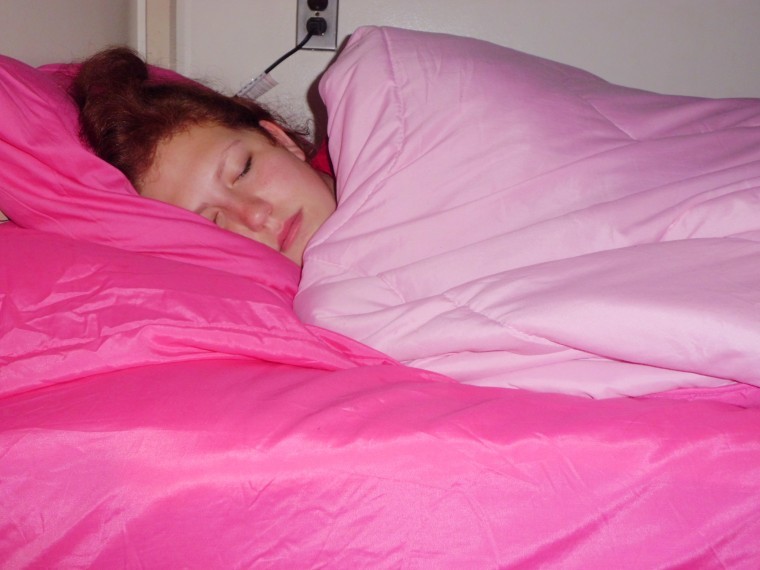Sleep deprived students may not perform as well in classes
Freshman nursing major, Elizabeth Dunn, works on getting her eight hours of sleep. Andrea Drott, health educator for Health Enhancement reccomends that students get seven to eight hours of sleep per night for true academic success.
September 13, 2011
Getting sleep is an important element to health. For college students, however, it’s the one aspect of life they tend to sacrifice to make time for other activities.
Senior biology major Yamini Patel said she loses sleep in order to receive good grades.
“[I get] about six hours of sleep at night because I have a lot of homework and intensive classes,” Patel said.
Other students may have problems sleeping.
“Last night I went to bed around one and woke up around seven,” said senior biology major Dagoberto Andrade. “I usually get around six to five hours of sleep because I stay up sometimes for classes, and I have trouble getting to sleep late.”
Both Patela and Andrade are only getting the minimum amount of sleep. Andrea Drott, health educator for Health Enhancement, recommends students get around seven to eight hours of sleep, as six hours is the minimum amount.
“Sleep is important for academic success,” Drott said. “The brain processes information better after a good night sleep.”
Students’ lack of sleep may ultimately affect how well they do in class.
Drott said students tend to miss class because they are sleeping in or can miss out on learning information while in class. Sleepy students’ brains could slow down, preventing them from fully taking in information they learn in class. This also means that students who stay up all night to study are hurting their chances at doing well on their assignments, as sleep helps the brain function better.
“Students should maintain a normal sleep pattern,” Drott said. “They should try to get in bed and get up at the same time every day regardless of when they have a class at one in the afternoon.”
Drott also said sleeping in on weekends doesn’t make up for lost sleep during the week.
“Students can’t build up a sleep bank; sleep doesn’t work like that,” Drott said. “Even though it feels better to sleep in on the weekends, there are long term effects.”
Drott said students will be able to sleep better if they avoid certain habits before bed.
“One thing [students should do] is avoid caffeine, alcohol and other drugs before bed,” Drott said. “Students may say these help them sleep, but they can interrupt sleep patterns.”
If students are having any other trouble sleeping, they can go to the Sleep Place on the Health Enhancement website. This is a resource for students provided by the Health Enhancement that supplies students with articles, links and video clips about any sleep related issues from napping tips to sleep walking explanations.







